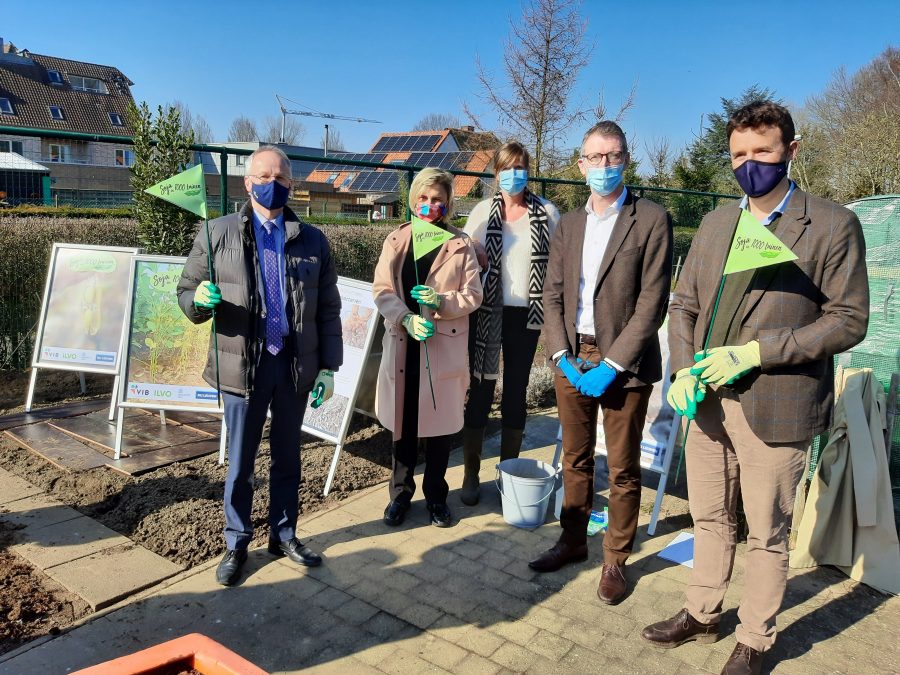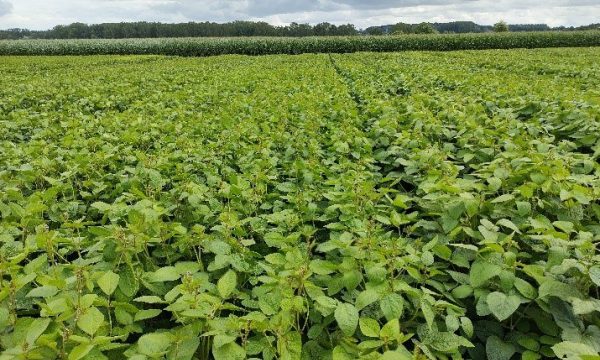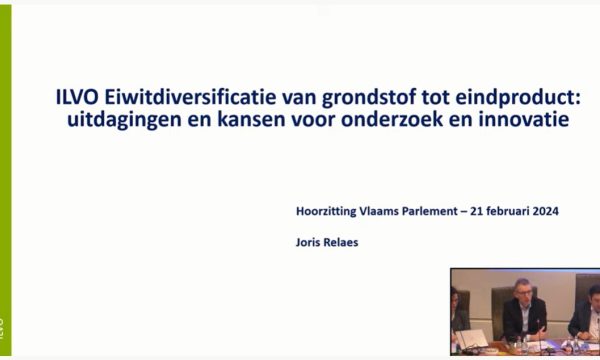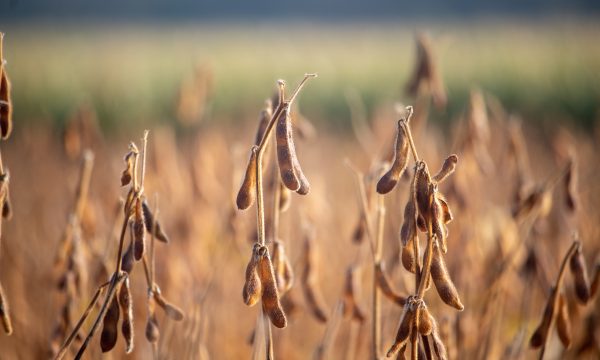Press release Scientists want to create a library of soil bacteria with the help of 1000 citizens - and a minister

As one of 1,000 citizen scientists, Flemish Minister of Agriculture, Innovation, and Food, Minister Hilde Crevits, will monitor soybean seeds in an allotment in her hometown of Torhout. For science and for 'Soy in 1000 gardens', a research project of VIB, UGent, ILVO, KU Leuven in collaboration with volunteers from all over Flanders. The aim? Stimulating sustainable soy cultivation in Flanders by mapping local soil bacteria.
Soy: a miracle bean?
Soybeans are one of the most important vegetable protein sources. They are used in meat substitutes, but also as animal feed and as a basis for soybean oil. But soy processors have to import most of their raw material.
“Growing soy in Flanders is still quite a challenge,” says Prof. Sofie Goormachtig of VIB and UGent. "Local production would offer many benefits for the environment, the climate, our economy, and our soil."
Sofie Goormachtig studies the interactions between plant roots and natural soil organisms. Together with an interdisciplinary team of researchers, she wants to identify Flemish soil bacteria that can help us to grow soy locally.
A library of soil bacteria from 1,000 gardens
The team wants to identify bacterial species in soils across Flanders that promote the growth of soy: “Soy is a subtropical plant that is not adapted to our environment. If we want soy to feel at home here, we also have to find the right microbial partners in our soil.”
To succeed, the researchers are looking for 1,000 citizen scientists to plant soybeans in their gardens. “We are looking for a good spread throughout Flanders, and so we have to make a careful selection to ensure we include a wide variety of environments and soil types,” says Goormachtig.
Minister Hilde Crevits has already prepared a piece of land: “Citizen science narrows the gap between science and society: citizens carry out their own research and provide a wealth of unique data for the researchers. Projects like this stimulate support for science, technology, and innovation. Moreover, I am simply very curious whether the bacterial life in the soil here in Torhout already has natural strengths to help soy to grow.”
“The results of this project should help to facilitate the local cultivation of this protein-rich crop. In addition, local soy cultivation has a low need for nitrogen fertilization and is good for soil quality. Reason enough to roll up your sleeves,” said the minister.
Do you want to contribute?
Do you have a garden with or without trees, large or small, in the city or in the countryside, lots of lawn or just wild vegetation? All types of gardens and gardeners are welcome to participate in 'Soy in 1,000 gardens'. The researchers are also specifically looking for farmers. “Not to plant the soy in a field, but to plant soy in their garden, just like other citizens,” explains Goormachtig.
What does participation entail? You will need to monitor the germination and growth of the soy plants and provide a soil sample from your garden. In exchange, you will receive the results of the soil analysis of your garden. You can find more information via sojain1000tuinen.be , and you can register until 8 March.
What does participation entail?
Do you have a garden with or without trees, large or small, in the city or in the countryside, lots of lawn or just wild vegetation?


